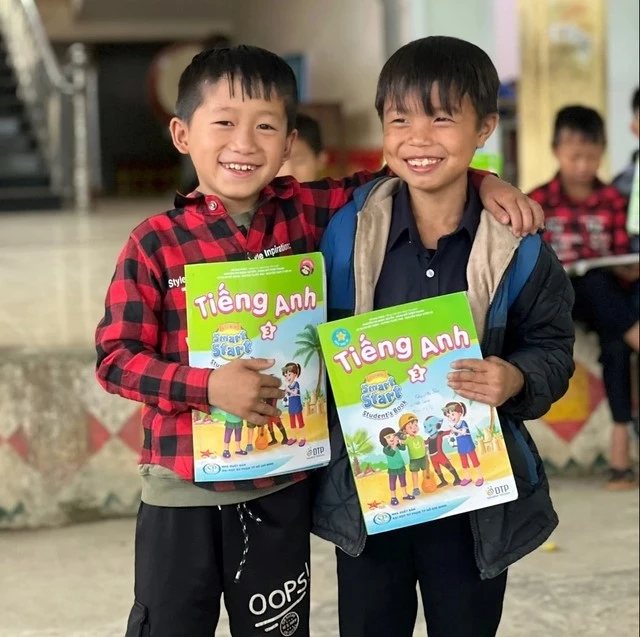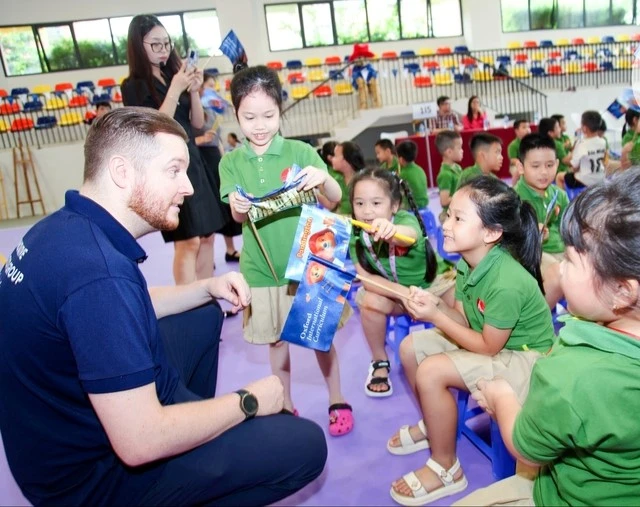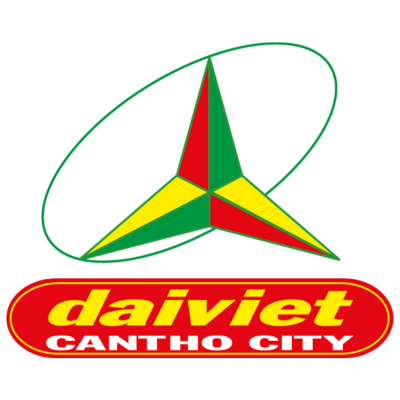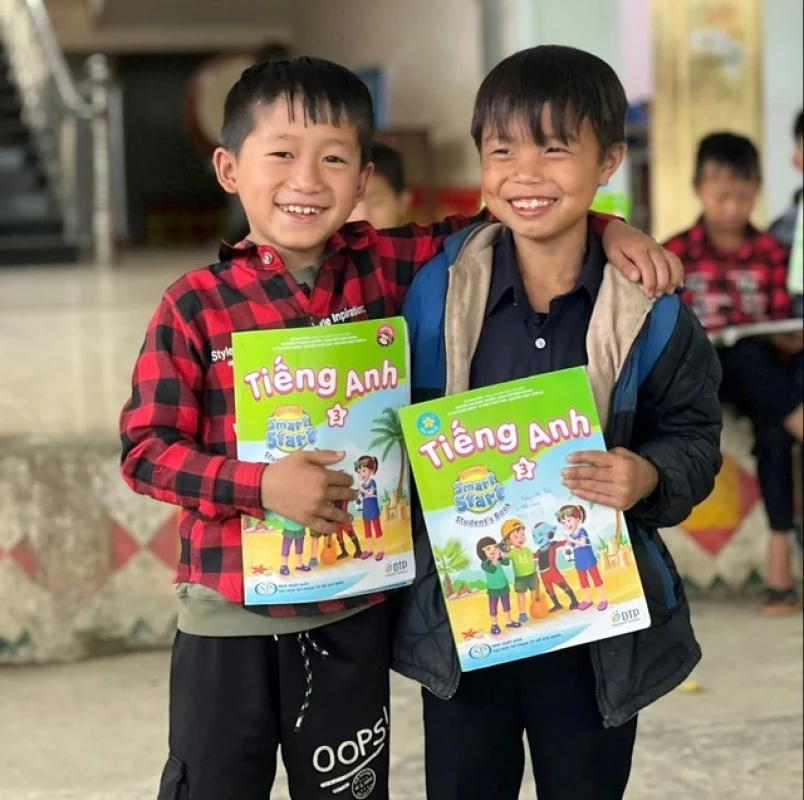Making English a second language in schools needs to be done first, then expanded. With the general spirit of doing it where it can be done first.
Making English a second language in schools needs to be done first, then expanded. With the general spirit of doing it where it can be done first.
From teaching English according to the current general education program
In the 2006 General Education Program, foreign languages are compulsory from grades 6 to 12 (7 years). In the 2018 General Education Program, foreign language 1 is compulsory from grades 3 to 12 (10 years). Foreign language 1 includes 7 languages: English, French, Chinese, Russian, Japanese, Korean, German. In fact, nationwide, students mainly learn English, more than 95%.

Lacking teachers, students from grade 3 in Meo Vac district (Ha Giang) learn English online with teachers from the "bridge" of Hanoi
PHOTO: M.C
In the 2022-2023 school year, the 2018 General Education Program will begin implementation in grade 3. Many provinces are seriously lacking English teachers. Specifically, Meo Vac district (Ha Giang) has 2,609 students, divided into 76 grade 3 classes in 18 primary schools. The number of English lessons to be taught is 10,640 lessons/school year. But the whole district only has 1 primary English teacher. Meo Vac district "asks for help" from Marie Curie School (Hanoi) to teach English online to grade 3 students in the whole district!
We accepted. After one school year, the Ministry of Education and Training and the Department of Education and Training of Ha Giang assessed that they met the standards. We continued to teach this group of students for two more years, until they finished primary school.
The following generations of students, following the teaching method of Marie Curie School, many localities have accepted to help Meo Vac district. This teaching method has spread to some other provinces, overcoming the shortage of English teachers.
However, the above solution is only temporary, it cannot last forever!
The core problem here is that localities do not have a source of English teachers to recruit, while there are quotas for staffing. To help Meo Vac district stabilize in the long term, I propose to the district People's Committee to train local English teachers, after graduating from university, they will return to teach students in the district. The method is to combine "recruitment" and "socialization", specifically: the district recruits students to study English pedagogy at university, after graduating they will return to teach in the district; during the university period, Marie Curie School provides a scholarship of 5 million VND/student/month for 4 years of study.
The English teacher training project for Meo Vac District (Ha Giang) has been implemented for one year (since 2023). Currently, there are 33 students in the project. Starting from 2025, graduates will return to the district to teach English. By June 2028, the project will provide the district with 33 English teachers, exceeding the target of 3 teachers.
In this way, Meo Vac District's English teaching staff will be sufficient and stable to implement the 2018 General Education Program.
Someone asked me about the connection between the English teaching support project that I am implementing and the popularization of English, making English a second language... However, in reality, those two projects only stop at helping Meo Vac District properly implement and ensure the quality of English according to the 2018 General Education Program.
So, how should we make English a second language?
Vietnam's starting point is very low
Conclusion No. 91-KL/TW of the Politburo stated: "Universalize English for all people, make English the second language in schools".
In my opinion, this is a very big problem, not easy to do, cannot be done in a few decades. But we must start now. The second part of Conclusion 91 must be done first, that is, step by step "make English the second language in schools". Then "universalize English for all people".Then "universalize English for all people

Students at Marie Curie School learn English with foreign teachers
PHOTO: NGUYEN LAM
To make English the second language in schools, I can outline the most basic steps as follows:
One is to legalize English: amend the Education Law and sub-law documents, stipulate that the first foreign language in general schools is English, other languages are the second foreign language (students who need it and schools with the conditions can teach it).
The second is the issue of the teaching staff, there must be a team of teachers with English proficiency in many subjects (math, physics, chemistry, biology, information technology, technology, etc.), not just English. This team of teachers can train Vietnamese people in the country or abroad. At the same time, "open the door" to attract foreign education experts, the mechanism must be flexible (issuing visas and granting practice licenses).
Third, do the pilot first and then expand it with the general spirit that wherever it can be done first, do it, whatever subject can be done first, do it; do not line up to advance; do not hold back or wait for each other. Encourage big cities like Hanoi, Ho Chi Minh City, etc. to do it first.
In these cities, "give the green light" to some schools with conditions to teach in English some subjects such as math, physics, chemistry, biology, etc. If they are taught in English, then stop teaching in Vietnamese. Subjects taught in which language (Vietnamese or English) must be tested and examined (enrollment, graduation) in that language.
The fourth step is that some professions must be taught in English: universities and colleges have some majors such as information technology, semiconductor technology, maritime, aviation, tourism, hotels, etc. taught in English.
Vietnam's starting point is very low compared to the purpose and requirements of Conclusion 91. From policies (laws, decrees, circulars, etc.) to practice, there are shortcomings: equating English with other foreign languages; The teaching staff has very low or no English proficiency; the English output standards of high school students are very low; the physical facilities are not sufficient; the demand for English use is uneven in regions and fields... Marie Curie is a private school in Hanoi, for more than 10 years now, it has invested heavily in English, the level of students is higher than the average of public schools, far exceeding the standards of the Ministry of Education and Training. However, it has not yet met the requirement of "English as the second language in school". It is not certain whether it will meet the requirement in 20 years.

